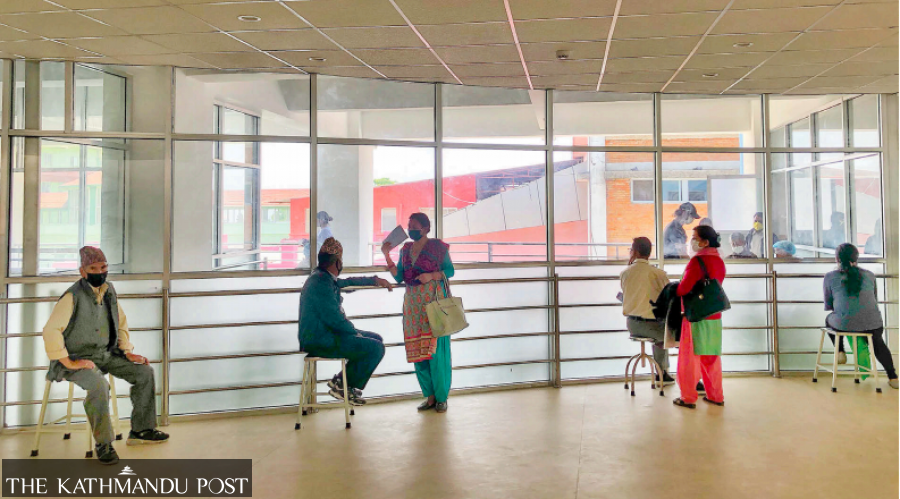Health
People with comorbidities deprived of health care amid pandemic
Infection fears and restrictions enforced by the authorities have affected the follow-up visits of many patients.
Arjun Poudel
For the last 15 months, Radhika Oli has been unaware of her medical condition. She suffers from diabetes, high blood pressure and thyroid disorder.
“My condition requires regular follow-up visits to my doctor, but I haven’t been able to do that because of Covid-19,” the 43-year-old housewife from Surya Binayak, Bhatapur said.
Infection fears and restrictions enforced by the authorities to contain the coronavirus spread have affected the follow-up visits of many patients like Oli, who are living with chronic non-communicable diseases.
A 2019 study on the prevalence of non-communicable diseases by Nepal Health Research Council found that non-communicable diseases accounted for 71 percent of the deaths in the country.
Doctors say the findings of the study are even more concerning because Covid-19 severity and deaths are high among people with comorbidities.
“At a time when we are focusing on containing the coronavirus spread, authorities should also not forget about the issues of non-communicable diseases,” Dr Megnath Dhimal, chief researcher at Nepal Health Research Council, told the Post.
With the second wave of infections hitting the country, most of the state-run health facilities as well as private and community hospitals have been converted into Covid-19 dedicated hospitals. This has halted the regular health care services, preventing people with chronic conditions from getting treatment.
Of late, hospitals have resumed their regular services, but with travel restrictions still in place, people living in villages are still unable to visit health facilities.
The study of Nepal Health Research Council was primarily focused on behavioural risk factors—tobacco and alcohol consumption, biological risk factors—raised blood pressure, overweight, obesity, abnormal lipid prevalence, coronary artery disease, chronic obstructive pulmonary disease and diabetes.
The findings showed that the leading risk factor of deaths in 2019 was smoking, whose attributable death was 17.7 percent, followed by high systolic blood pressure 12.3 percent, household air pollution 11.2 percent, ambient air pollution 9.3 percent, diabetes 8 percent, high cholesterol, kidney dysfunction among others.
Another study, Nepal Burden of Disease, conducted in 2017 found that two in every three deaths (66 percent) in the country are caused by non-communicable diseases—heart disease, chronic obstructive pulmonary disease, lower respiratory infection and stroke.
In other words, people with noncommunicable diseases have increased risk of getting severely sick or dying if they get infected with the coronavirus.
Dr Samir Kumar Adhikari, joint spokesperson for the Health Ministry, admits that the majority of Covid-19 patients who get severely sick and die are likely to have some comorbidities.
“People having comorbidities or suffering from noncommunicable diseases should not take risks. They have to undergo regular tests and visit their doctors,” Adhikari told the Post.
But with many health facilities deprioritising regular services to make room for Covid-19 patients, prevailing infection fears and travel restrictions, the Health Ministry’s advice for people with comorbidities to go for regular doctor visits is not possible.
“It is really absurd that all the agencies have been focusing only on the management and treatment of Covid-19 cases while ignoring the issue that is killing people many times more than the coronavirus,” an official at the Department of health Services said on condition of anonymity.
Dr Padam Bahadur Chand, former chief of Policy Planning and International Cooperation Division at the Health Ministry, agrees that the authorities should not neglect the problems of people who suffer from noncommunicable diseases.
“Of course, the pandemic is a major medical emergency and focussing on controlling it is important. But, at the same time, we should not be ignoring the regular medical problems of the people,” Chand told the Post.




 20.12°C Kathmandu
20.12°C Kathmandu















